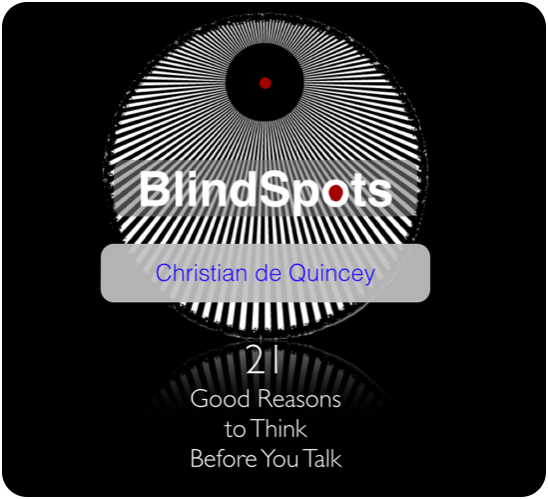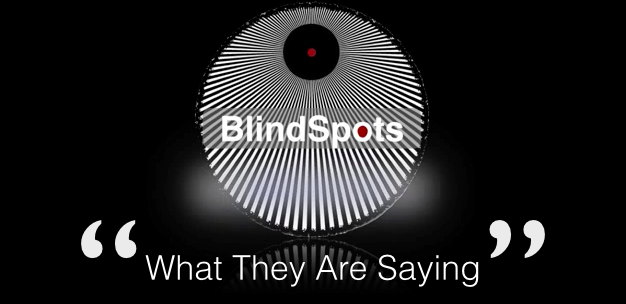BlindSpots
New Book
 Find Out More
Find Out More
. . .
Speaking in Clichés
Scientists do it. Philosophers, too. So do authors, journalists, and other media gurus.
Religious and spiritual teachers do it, and then influence millions of followers to do it.
Everyone, it seems, speaks before thinking—communicating in clichés.
. . .
We all carry these “thought viruses,” infecting almost everyone we come in contact with. If you stop and pay attention, you can probably recognize common cognitive gremlins flowing from your own lips from time to time.
I call them “blindspots”—ideas we assume make sense, but a few moments’ reflection reveals how absurd they really are. We all have them: gaps or knots in how we view and think about the world—about life, mind, space, time, energy, information, healing, free will, reality, belief, self, relationships, evolution, artificial intelligence, God . . . science, spirituality, metaphysics . . . or anything else
Think about it: How often do you read or hear something that, at first, seems right, but deep down your gut screams “NO!”? Logic and sheer common sense further convince you “It’s just not possible.”
Over the years, I’ve noticed these cognitive blindspots in books, blogs, websites, TV shows, movies, classrooms, and casual conversations. And I keep wondering: Why do so many people (especially those who should know better) speak before thinking, spreading ideas that make no sense, yet fool us into thinking they do?
 ..Check out 21 common clichés that distort our understanding of science, philosophy, and spirituality.
..Check out 21 common clichés that distort our understanding of science, philosophy, and spirituality.
 Find out what they say about BlindSpots
Find out what they say about BlindSpots
.
